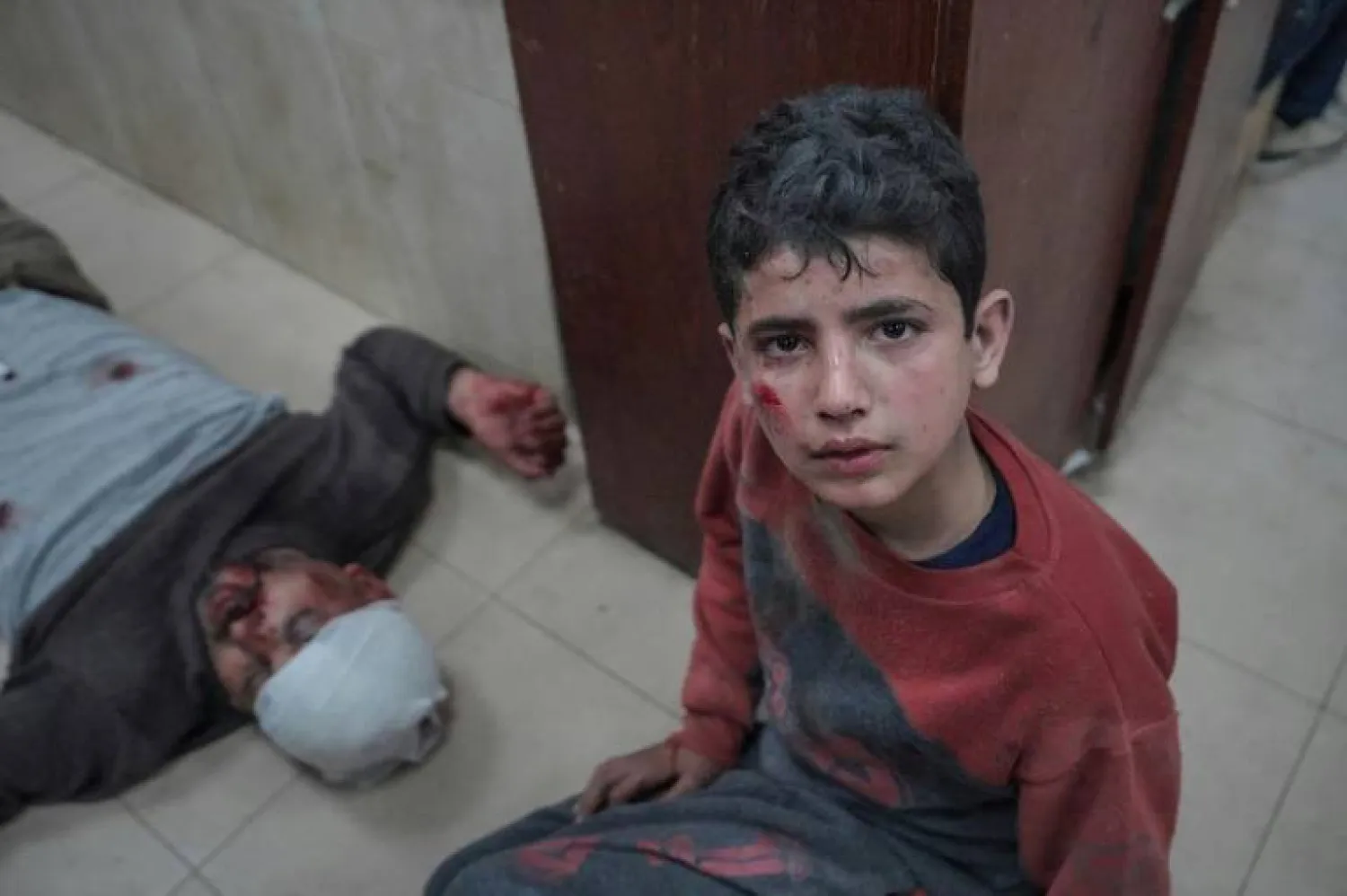A Spanish aid boat was en route to Gaza on Wednesday, opening a new maritime corridor intended to allow deliveries of desperately needed food to the Palestinian territory ravaged by months of war between Israel and Hamas.
In a sign of worsening humanitarian conditions, the Hamas-run territory's health ministry says 27 people have died of malnutrition and dehydration, most of them children.
A weeks-long diplomatic push had sought to bring about a ceasefire and increase aid deliveries before the start of the holy month of Ramadan, but key mediator Qatar said Tuesday that the warring sides were not close to striking a deal.
Fresh bombardments could be heard in southern Gaza, an AFP journalist said early Wednesday, and the health ministry reported another 70 people killed in overnight strikes.
With land shipments into the territory severely curtailed, the international community has sought to diversify routes for delivering aid, including via air drops and the new Cyprus maritime corridor.
The Open Arms ship that left the port of Larnaca on Tuesday is towing 200 tonnes of relief goods roughly 400 kilometres (250 miles) across the Mediterranean to Gaza, with US charity World Central Kitchen saying work was "underway" on a jetty to unload the shipment.
Cyprus said a second vessel was also being prepared.
Gaza has experienced dire shortages of food and other essentials since Israel imposed a siege at the outset of the war, and prices have shot up for what food there is.
"Today, there are many things in the market that are not available; even if they are available, they are at astronomical prices," said dentist and Gaza City resident Baher Hassouna, one of the 1.5 million Gazans displaced to the southern border city of Rafah.
Four US Army vessels also departed a base in Virginia on Tuesday carrying about 100 soldiers and equipment needed to build a temporary port on Gaza's coast to facilitate aid shipments.
The new facility -- which will consist of an offshore platform and a pier to bring aid ashore -- is expected to be up and running "at the 60-day mark", US Army Brigadier General Brad Hinson told journalists.
Aid groups have been warning of the risk of famine in besieged Gaza for weeks, and the United Nations has reported particular difficulty in accessing the territory's north for deliveries of food and other humanitarian supplies.
The UN aid coordinator for Gaza, Sigrid Kaag, and head of the United Nations Office for Project Services, Jorge Moreira da Silva, said in a joint statement they "welcome the opening of a maritime corridor" while cautioning it may not be enough.
"For aid delivery at scale there is no meaningful substitute to the many land routes and entry points from Israel into Gaza," they said.
The Israeli army on Tuesday night announced a pilot project for delivering aid directly into the north, saying six World Food Program (WFP) aid trucks had entered through a new crossing.
Israel has maintained strict control over supplies entering the Gaza Strip, and aid workers have blamed cumbersome screenings for the severity of the current shortages.
Israel blames problems on the Palestinian side for inadequacies in aid delivery.
Without specifically mentioning the new overland route, the WFP wrote on social media platform X that it had "delivered enough food for 25,000 people to Gaza City early Tuesday in (the) first successful convoy to the north since 20 February".
"With people in northern #Gaza on the brink of famine, we need deliveries every day," it added.
Morocco, meanwhile, sent a plane loaded with 40 tonnes of relief supplies directly to Ben Gurion airport near Tel Aviv, a diplomatic source said, a bid to bypass bottlenecks on the Egypt-Gaza border.
Philippe Lazzarini, head of the UN agency for Palestinian refugees, UNRWA, called on Tuesday for an immediate ceasefire, labelling the conflict "a war on children".
In a post on X, Lazzarini cited UN and Gaza health ministry figures that suggest more children have been killed in Gaza between October and February "than the number of children killed in four years of wars around the world combined".









